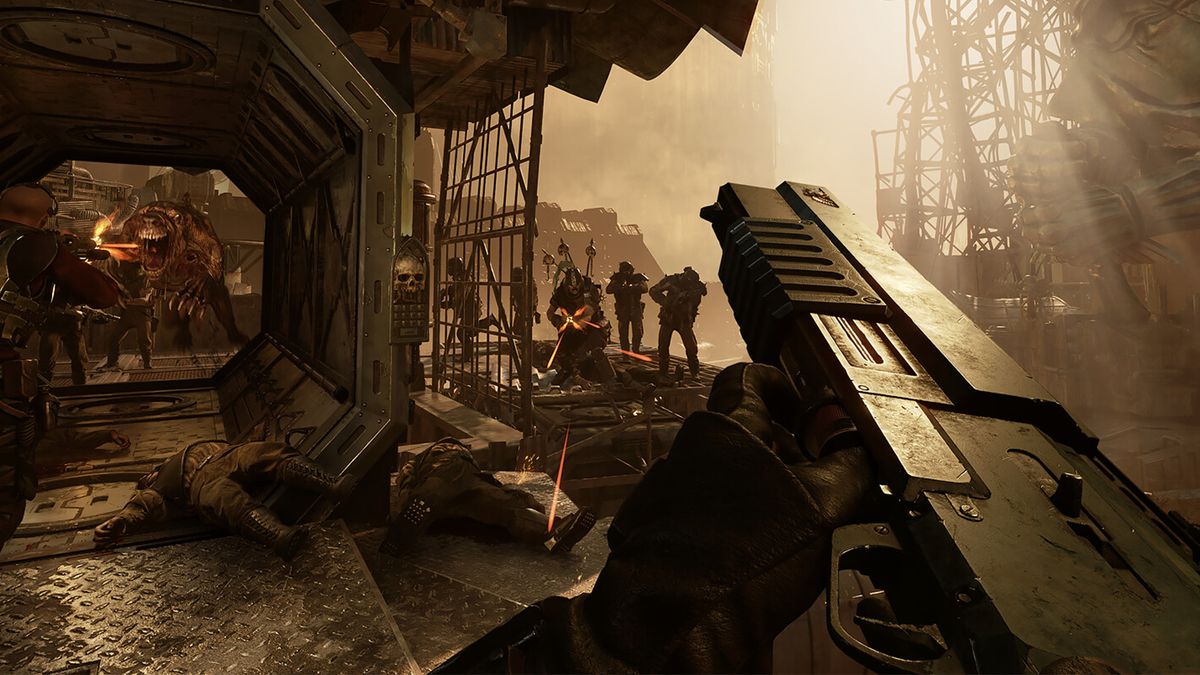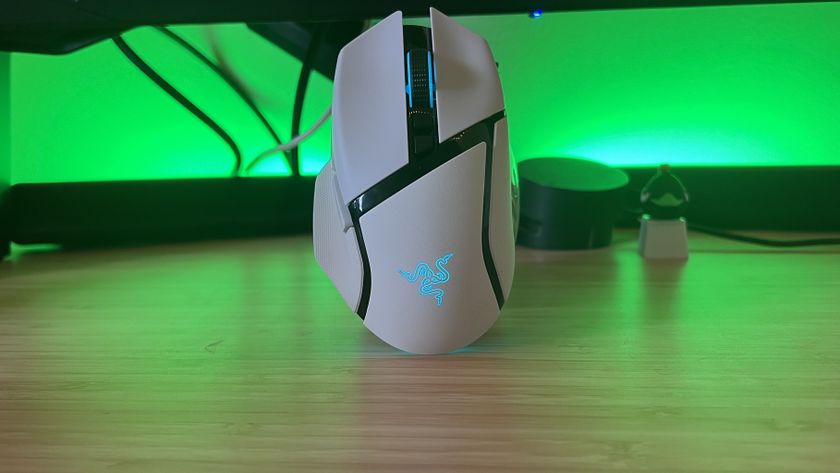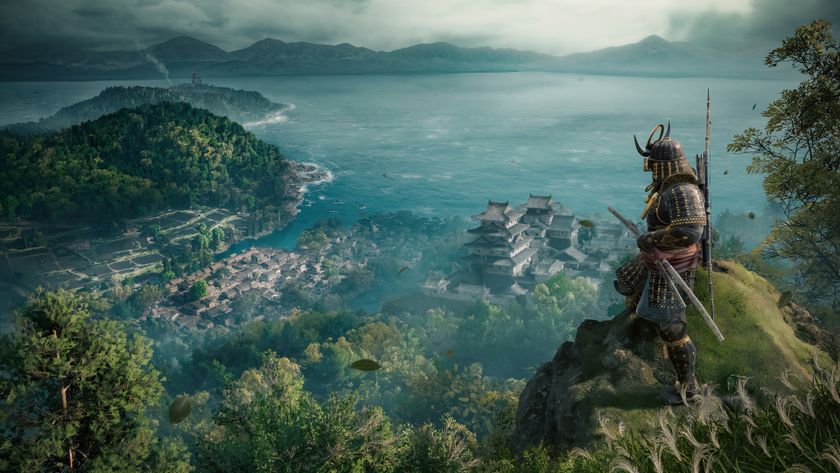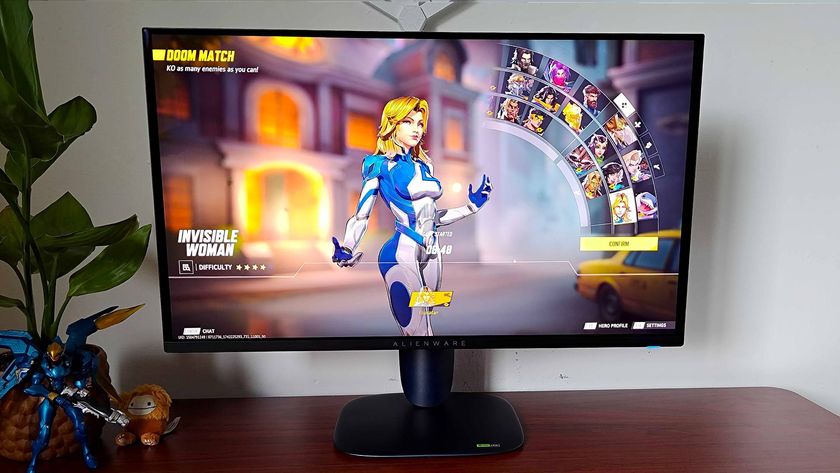12DOVE Verdict
Warhammer 40,000: Darktide delivers an action-packed cooperative multiplayer experience with deeply satisfying combat and a spellbinding depiction of the 40k universe. But the game currently feels more foundational than comprehensive, with the emphasis on repetition and lackluster progression systems undermining its grisly joys.
Pros
- +
Fantastic combat
- +
Does justice to the 40k universe
- +
Visually impressive world
Cons
- -
Progression too slow
- -
Vague, disparate story
- -
Lacks sufficient missions to justify its structure
Why you can trust 12DOVE
Warhammer 40k: Darktide has taught me three things. First, Video games need more Yorkshire accents. Second, Developer Fatshark is the master of cooperative multiplayer. Third, an undercooked live-service model can really scupper a great game. Mechanically, Warhammer 40k: Darktide is Fatshark's best effort yet, a riotous multiplayer adventure that sees you carving your way through a plague-ridden Hive City with chainswords, lasguns, and thunder hammers. The combat is incredible, the scenarios thrilling, and the depiction of the 40k universe breathtaking. But this fantastic core is stretched across an underwhelming progression system that leads to heavy repetition and a general lack of purpose.
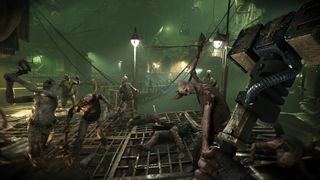
Release date: November 30, 2022
Platform(s): PC
Developer: In-house
Publisher: Fatshark
Darktide's action takes place in Tertium, a Hive City on the planet Atoma Prime. Tertium is a gigantic urban wedding cake that has gone galactically stale, a vertical labyrinth of obnoxious gothic architecture, cacophonous military industry, and untold suffering. And that's before an outbreak of plague transforms its downtrodden millions into maggot-infested poxwalkers. For you, a prisoner aboard the Imperial Cruiser Tancred Bastion, this plague is a blessing and a curse. On the upside, it means you're not going to be executed for whatever crime the Imperium has decided you committed. On the downside, guess who's about to be press-ganged into the role of Imperial antibody?
Moving beyond Vermintide
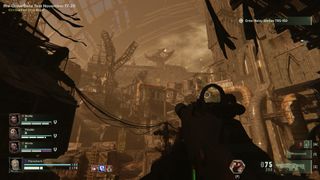
Unlike Fatshark's previous game, Vermintide 2, you don't play as a set character in Darktide. Instead, you create your own reprobate from one of four distinct Darktide classes, who you'll then gradually ascend from corpse-in-waiting to unstoppable killing machine. You could be a Veteran Sharpshooter, a Zealot Preacher who bellows scripture as they charge into battle, a Psyker whose weaponised migraine can pop enemy heads, or a towering Ogryn Skullbreaker who can plough through hordes of foes like a Land Train.
There's a potential problem here. Like Left 4 Dead before it, one of Vermintide's strengths was how its bespoke characters added so much personality to the adventure – whether through commenting on the environments, chewing over nuggets of Warhammer lore, or simply bickering with each other as they slaughtered Skaven by the hundred. Darktide gets around this by giving your custom characters multiple personalities to choose from.
My Preacher, for example, addresses his companions like a nineteenth-century Scottish Calvinist rolling a marble around his mouth, while my Skullbreaker would spend entire missions talking about food in a Yorkshire dialect that I can only describe as "splendid". Each potted personality has its own observations, opinions, and responses to comments made by other characters. It's an impressively knotty bit of narrative design, although it begins to break down when the matchmaking throws together three disaffected Irish veterans.
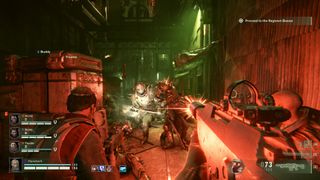
"Furnishing characters with an assault rifle lets them flit between short and mid-range combat, depending on what the situation requires"
Characters are similarly flexible in terms of how they fight. Broadly, the Priest and Skullbreaker are designed as close-range specialists, while the Veteran and Pskyer are better at picking off enemies from afar. But there's plenty of room for tailoring a more specific build. The Skullbreaker, for example, can be equipped with a hulking riot shield that lets them double-down on their tanking role, or a giant grenade launcher that can obliterate hordes of enemies in a single shot. A priest equipped with a flamer is similarly effective at crowd-control. But furnishing them with an assault rifle lets them flit between short and mid-range combat, depending on what the situation requires.
In general, ranged weapons play a greater role in Darktide than they did in Vermintide, roughly averaging a 50-50 split with melee weapons (although that ratio varies between classes and builds). What's important is that Darktide's guns are equally satisfying to wield. A standard lasgun slaps out bolts of crimson energy that leave searing holes in enemy bodies, while you'll feel every thump of an Ogryn's grenade launcher through your fingers. I'm especially partial to the shotgun, which makes short work of poxwalker hordes and has a grating, metallic pump action that emphasizes the weapon's brutal functionality.
Embracing the ultra-violence
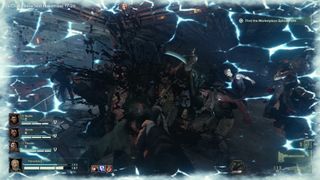
Whichever class you play, there will come a point where you'll need to rely on a weapon that doesn't require ammunition. First-person melee is Fatshark's speciality, and the studio's approach to hand-to-hand combat is perfected in Darktide. The basic hatchets and swords are immensely satisfying to wield, cleaving through poxwalker flesh in unnervingly distinctive ways. But the fun really starts when you unlock the more iconic Warhammer 40k death-sticks. The chainsword is a particular highlight. Not only can you pull it back for a heavy attack that will literally slice enemies in half, revving up its special attack will see you bring the sword crashing down onto an enemy's head, holding it in place while the chain chews through their skull. It's spectacularly grisly, and useful for dealing with tougher foes.
Beyond the influence of classes and weapons, a collection of smaller systems add further nuance to Darktide's combat. Each character is protected by a "Toughness" shield that depletes before your health, and can be regenerated by moving into proximity with other players, encouraging you to stick together. Enemies can use ranged weapons too, and being fired upon will make your own aim less accurate, forcing you to find cover, or close the distance to force your opponent to switch to melee. And of course, there are a host of Specialist enemies that will trip you up in various ways, including snipers who can down a player in a couple of shots, burly dogs that can pin characters to the ground, and powerful "Elite" foes such as the sluglike Beast of Nurgle.
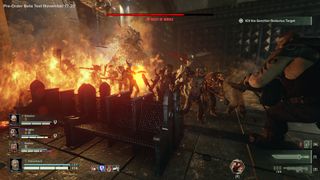
All this comes together to generate thrillingly dynamic action sequences. At its most intense, you'll be hacking through a literal screenful of enemies while harried from the flanks by Specialist foes, as composer Jesper Kyd's magnificent soundtrack thumps and buzzes in the background. Importantly though, it's not a constant onslaught. Whatever AI magic lurks beneath Darktide's surface excels at balancing intense encounters with moments of downtime, letting you gather your breath, reload your weapons, and if you're very lucky, admire your surroundings.
Darktide's environment design is, in a word, colossal. The game's 13 missions will see you scuttle through various areas of Tertium, each of which is as vast and ostentatious as its Warhammer 40k setting demands. You exist perpetually in the Imperium's shadow. Even in the handful of missions where you get to step outside, you're loomed over by the enormous buttresses of some monumental gothic folly. Then there are missions where you descend deep into Tertium's bowels, through ramshackle shanty towns, serpentine sewer systems, and imposing subterranean fortresses. That said, while visually imposing, individual missions are not as distinctive as those seen in Vermintide 2. This is partly due to the sheer density of the Warhammer 40k aesthetic, but there are other factors at play too.
Lost in Tertium
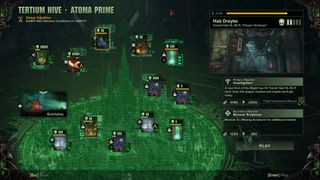
Moment-to-moment, Darktide is enormous fun. The problems reveal themselves once you escape from whatever pestilent cranny of Tertium you've most recently been sent to. Darktide's missions aren't organized into set campaigns like Vermintide. Instead, each mission stands alone, selected from a random assortment of missions that vary in difficulty, and whether or not they have special conditions such as an Endless Horde, or a greater or lesser number of specialized enemies. Completing a mission nets you a certain amount of gold and experience, letting you level up your character to unlock new weapons, cosmetics, and so forth.
But these two sides of Darktide – the missions themselves, and the wider progressions system – are wildly out of balance. Playing at level-appropriate difficulty, improving your character by one level will require you to play two-to-three missions, and characters max out at level thirty. Hence, you'll need to play somewhere between 60 and 90 missions to hit level 30, which given there are only 13 missions in the game, means a lot of replaying. Granted, Darktide's missions are designed to be replayable, with the machinations of the AI director and other variables helping to mix things up. But they're not built to handle the amount of replaying needed to level up one character, let alone four.
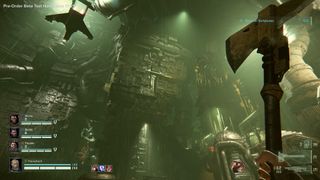
"As Darktide's levels aren't grouped into acts, it's much harder for Fatshark to tell coherent stories across them"
The new structure causes other problems as well. As levels aren't grouped into acts, it's much harder for Fatshark to tell coherent stories across them. Indeed, considering the talent involved in the narrative design (author Dan Abnett was involved in the creation of Tertium, for example), it's surprising to find that Darktide offers little in the way of a meaningful story. Every few levels you'll trigger a cutscene where you're introduced to some new character, who basically reminds you that you're yet to prove yourself, before directing you back to the meat-grinder. In addition, the lack of narrative arcs across levels is partly why individual missions struggle to stand out, as you don't get the same sense of the environment evolving around you.
It's also impossible to ignore the technical issues that have beleaguered Darktide since beta, and continue into launch. Although stability has improved substantially, I was still suffering at least one crash per play session at the time of writing. There are a network of issues surrounding ray-tracing and DLSS, to the point where Fatshark temporarily switched off ray-tracing entirely.
The usual caveats with live-service games apply. This is only the beginning of Fatshark's journey with Darktide; the studio is still working on the technical issues, and new content will undoubtedly be added in time. But that doesn't alter the fact that Darktide's progression systems are currently more detrimental to the game's overall quality than they are complimentary, and while there's still plenty of fun to be had right now, the optimal version of Warhammer 40k: Darktide lies in the grim darkness of the far future.
Warhammer 40k: Darktide was reviewed on PC, with code provided by the publisher.
More info
| Genre | FPS |
Rick is the Games Editor on Custom PC. He is also a freelance games journalist whose words have appeared on Eurogamer, PC Gamer, The Guardian, RPS, Kotaku, Trusted Reviews, PC Gamer, GamesRadar, Rock, Paper, Shotgun, and more.
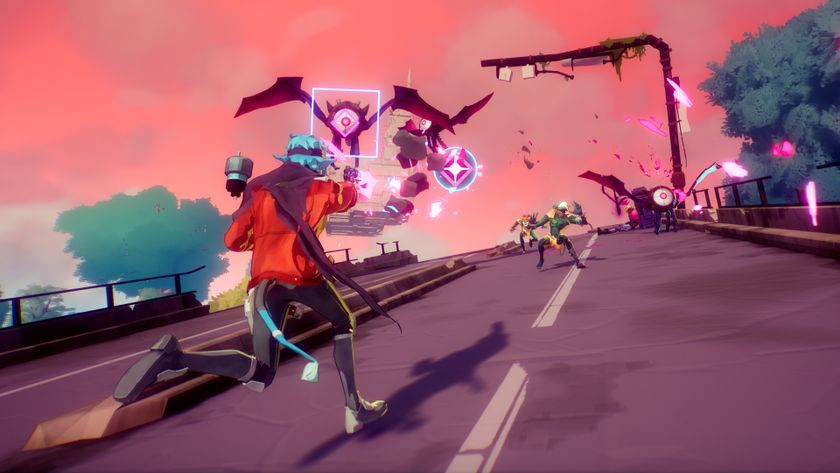
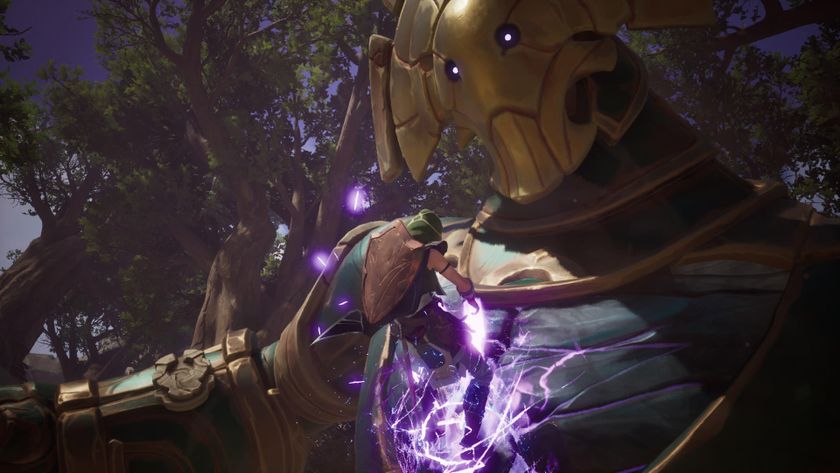
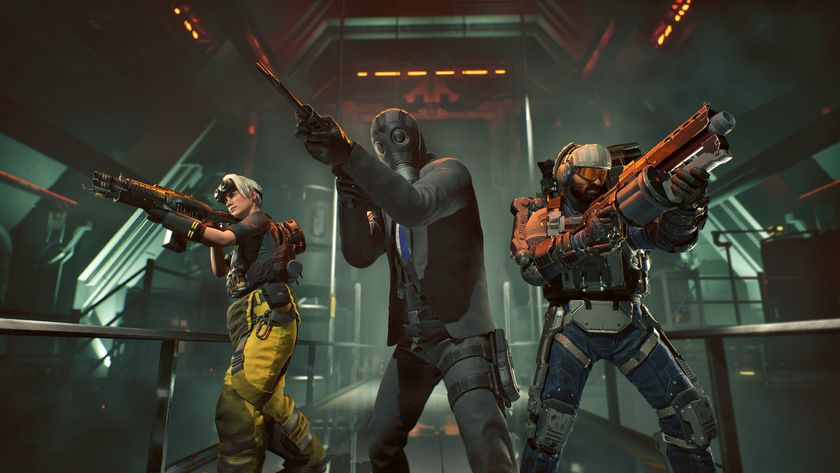
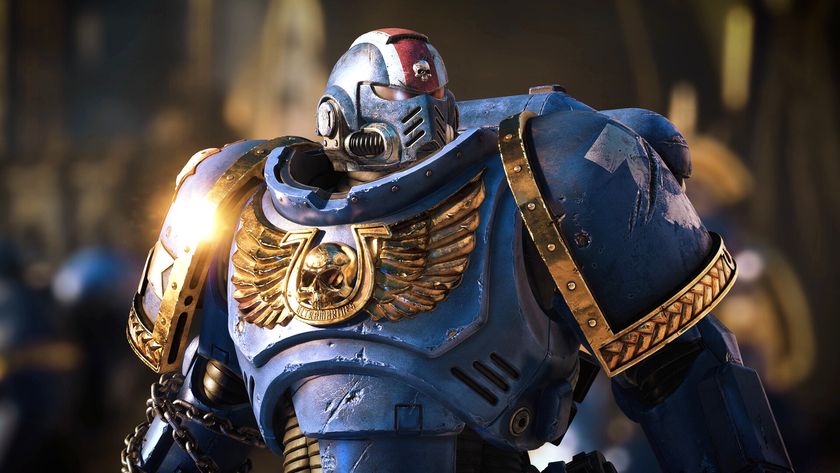
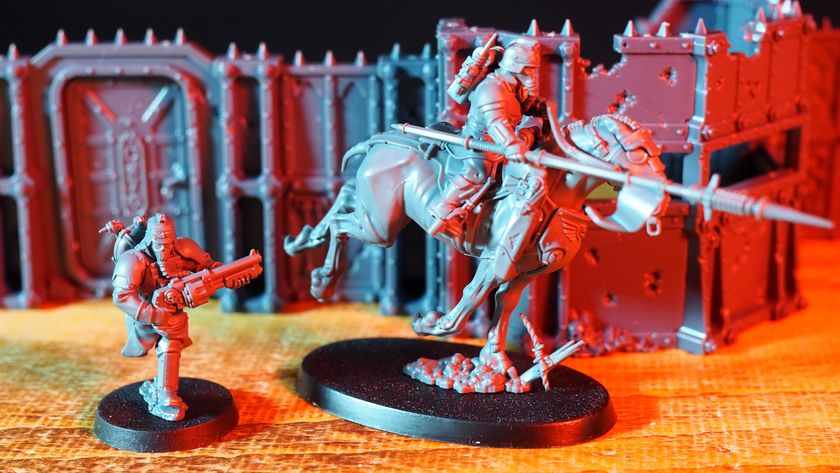
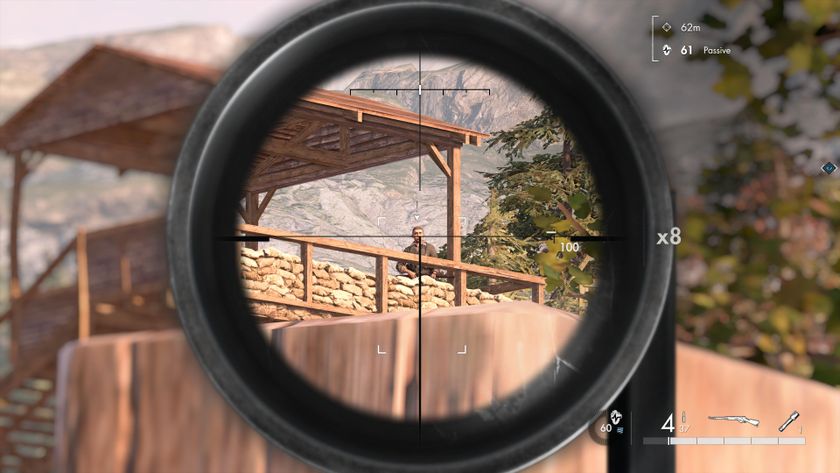
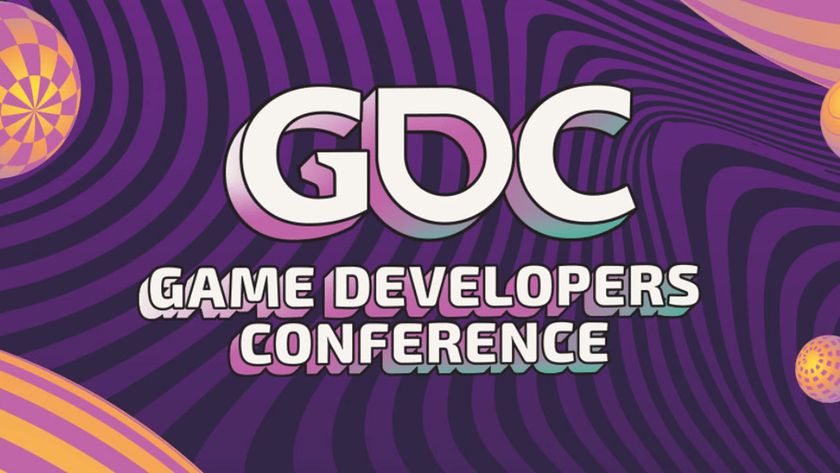



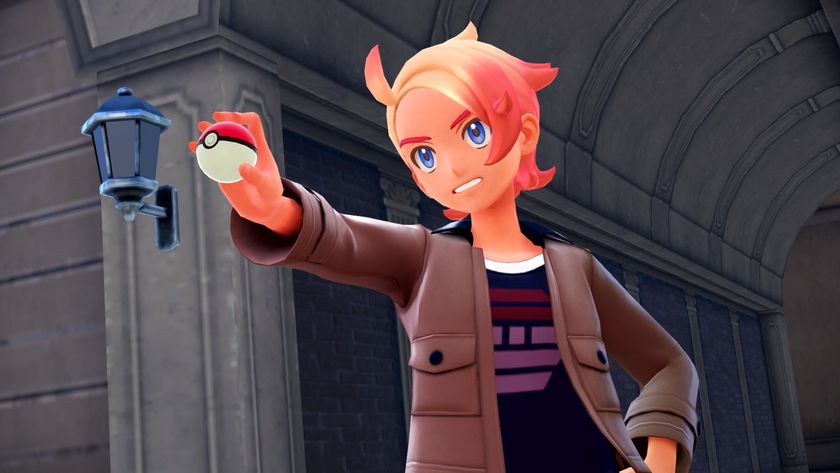
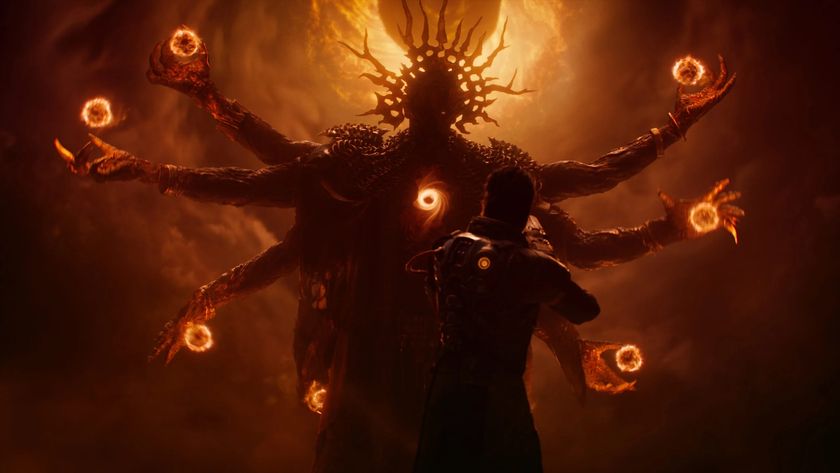





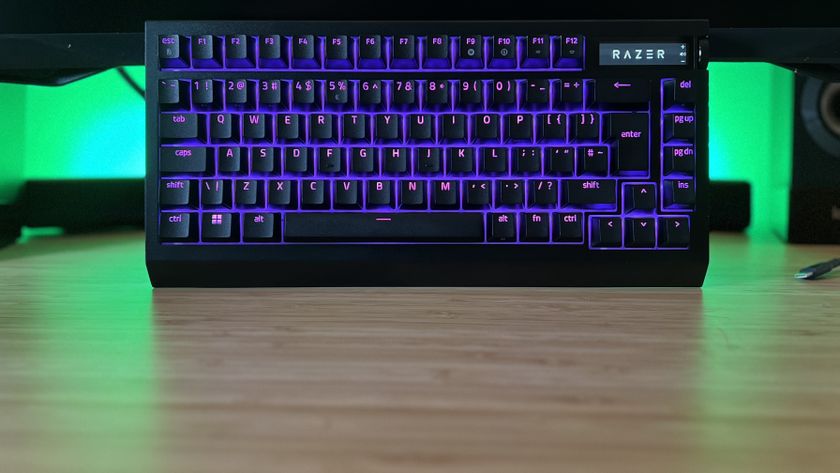
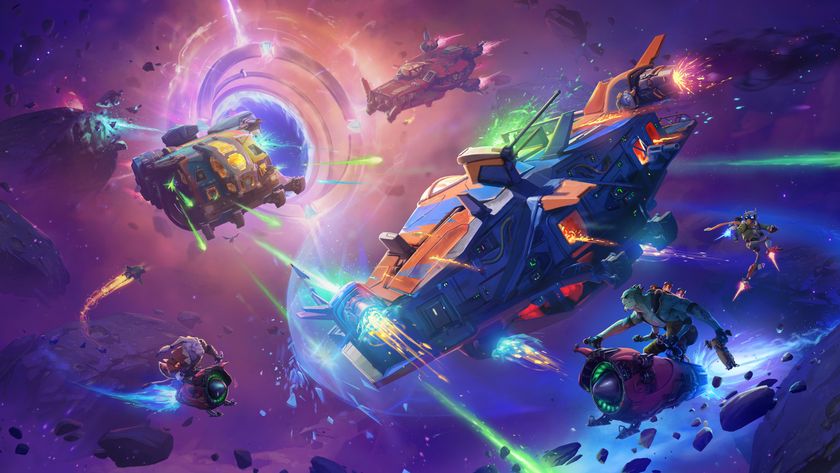
"We have to earn it": Wildgate is a frenzied sci-fi shooter from former Blizzard devs, but this multiplayer isn't riding any coattails
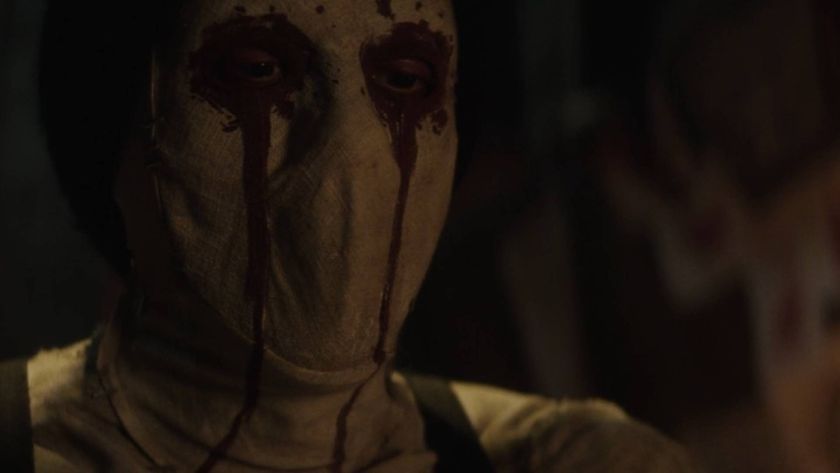
Daredevil: Born Again midseason trailer teases Matt Murdock’s violent fight with Muse, including a gory scene straight from the comics
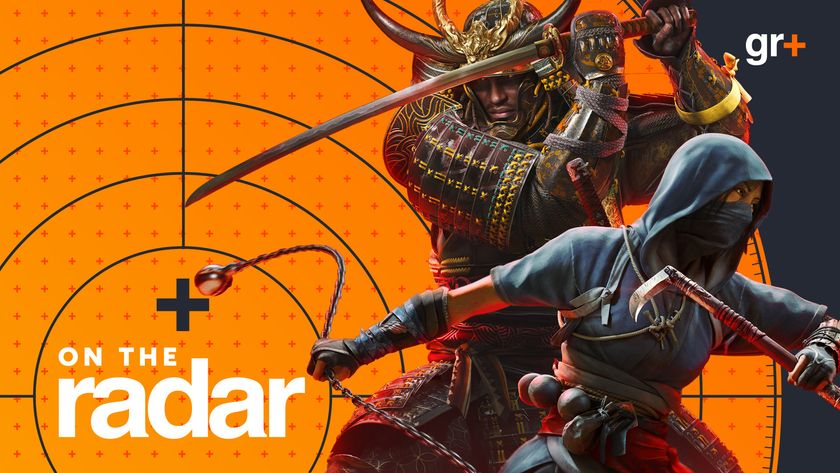
On The Radar: Assassin's Creed Shadows coverage hub
